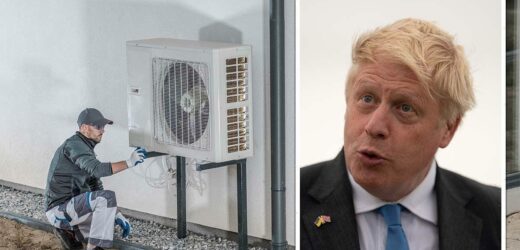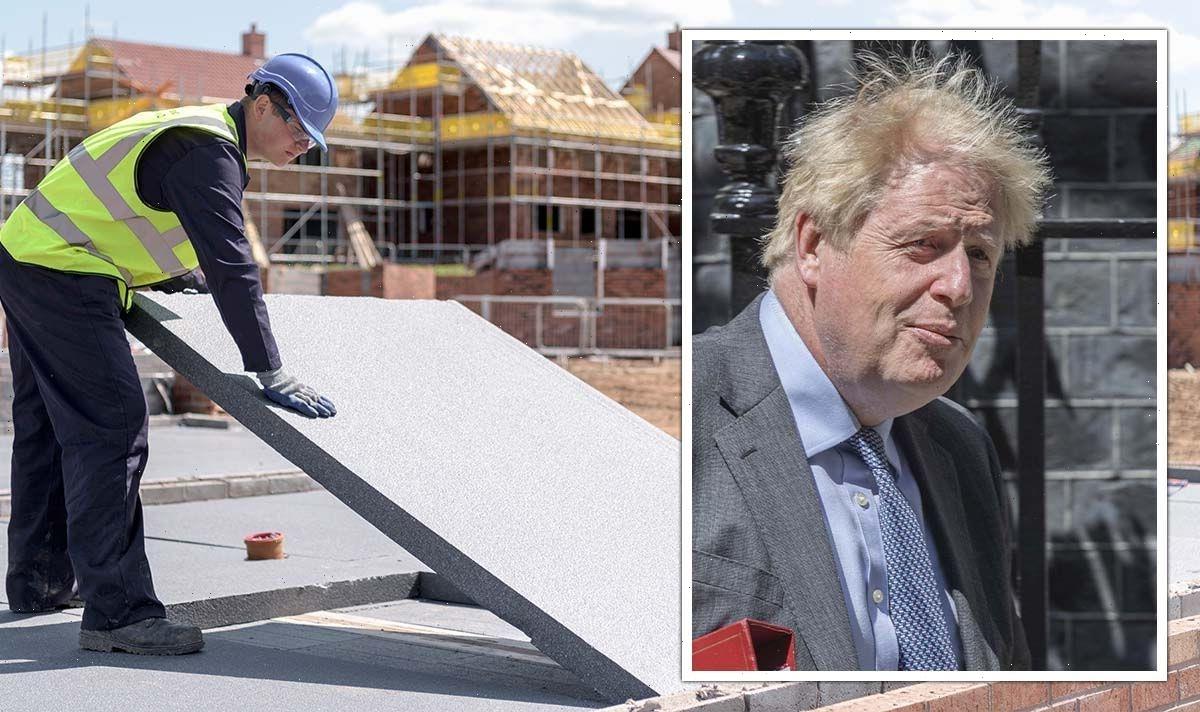Heat pump grant is 'scheme for wealthy' says Andy Mayer
We use your sign-up to provide content in ways you’ve consented to and to improve our understanding of you. This may include adverts from us and 3rd parties based on our understanding. You can unsubscribe at any time. More info
Heat pumps are devices that work like a refrigerator in reverse, moving heat from the air or ground outside a building to its inside, through the circulation of a refrigerant. In the case of an air source heat pump, for example, thermal energy from the atmosphere — while it may be colder than the air inside the building in question — is nevertheless warm enough to cause the liquid refrigerant to evaporate into a gas. This gas is then passed through a compressor, which increases the pressure of the gas and causes its temperature to rise at the same time. The heat from the gas can then be used to warm up the building, while the refrigerant cools and returns to its original, liquid state, allowing for the process to begin anew.
At present, it is estimated that around 85 percent of UK households use gas boilers, making it one of the most carbon-intensive sectors of the economy.
Given this, switching out fossil fuel heating with electric heat pumps and other low-carbon heating systems is key to the UK’s plans to achieve net zero by the turn of the century.
To this end, the UK Government is presently offering contributions to the initial capital outlay on heat pumps, with £5,000 off of the cost and installation of an air source heat pump and £6,000 for ground source heat pumps.
However, the initial installation costs — which can exceed £10,000, compared to just £1,500–2,000 for a new gas boiler — are still an off-putting hurdle to many potential users.


Lee Hermitage — advanced materials marketing director at Honeywell — told Express.co.uk that some of the Government’s initiatives around heat pumps are “very positive”.
However, he added, “What the Government could do more is look at the disparity between gas pricing and electricity prices.
“Currently, electricity is three times the cost of gas. A third of that retail price relates to the environmental tax that’s applied to it, which is not applied to gas in the same way.”
“If they were to look at that and reassess how they apply that tax, that would further improve the return on investment.
“That would make heat pumps much more attractive to the consumer, get a much faster payback — and I think you will increase adoption.”

Alongside this, Mr Hermitage explained, the Government should consider further measures to better help consumers overcome the initial capital investment in heat pumps.
He said: “£5,000 pounds towards a heat pump is good.
“But I think there are other measures they could take, potentially.
“You could almost imagine interest-free loan schemes and things of that nature whereby that initial outlay is lessened, so that one can actually pay that over a period of time.
“Can I tell people who are struggling with their energy bills that they need to be spending £10,000–12,000 on a heat pump? I think the answer is you can’t.
“If the Government is really serious about decarbonising, about reducing its reliance on Russia oil and gas, on really removing fossil fuels — the Government has to support people.
“At the moment […] the majority of consumers will not be able to spend this amount of money without the Government either offering interest-free loans or increased subsidies.
“It has to be something that the Government tackles.”

Mr Hermitage also believes that the Government needs to improve the ways in which they are engaging consumers with heat pumps and communicating the benefits.
He said: “I think that the consumer has to be educated much more on this. It cannot be left to the industry to do that.”
The key message that the Government needs to emphasise, Mr Hermitage believes, is the significance of the return on the investment in a heat pump — which can more than compensate for the initial setup costs in the long run.
He added: “By installing a heat pump, you can achieve a 25–27 percent reduction in your fuel bills.
DON’T MISS:
Putin sent warning: UK’s ‘three-year secret’ finally unveiled [INSIGHT]
Putin panic as terrifying US rockets to reach Ukraine THIS MONTH [REPORT]
UK tipped to ‘go in and kick Putin out’ of Ukraine [ANALYSIS]

Mr Hermitage continued: “The big issue for a lot of consumers is the fluctuations in the cost of their energy.
“The unpredictability of gas pricing has caused immense difficulties at a social and financial level for a lot of consumers.
“With heat pump production, you will get a much steadier rate, we reduce our dependence on fossils, and reduce our dependence on Russian gas.
“And overall, you’ll see a much more stable energy price profile.
“I think over the short-to-medium term, that has to be something that consumers want to think about, because all they really want is a more easier way to forecast what their monthly energy bills are going to be.”
Finally, Mr Hermitage said, the Government needs to be thinking ahead to ensure that we have the workforce needed to keep the country’s heat pumps running smoothly in the future.
He explained: “We are going to have to upskill the maintenance workforce to be able to handle these pieces of equipment.
“Currently, it’s not something that a gas fitter could easily just go in and do — they’re going to need to have additional training and that’s another investment we need to be making in the industry.”
The Government, Mr Hermitage added, has to start investing in things like apprenticeships, specific training programs and green contractors.
He concluded: “It’s not much use if you deploy heat pumps but don’t have the skilled workforce that’s able to maintain and install that equipment.”
Source: Read Full Article


